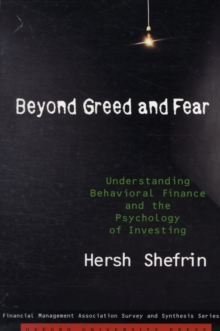
Asset Pricing and Portfolio Choice Theory Hardback
by Kerry E. (J. Howard Creekmore Professor of Finance, J. Howard Creekmore Professor of Finance, Back
Part of the Financial Management Association Survey and Synthesis Series series
Hardback
Description
In the 2nd edition of Asset Pricing and Portfolio Choice Theory, Kerry E.
Back offers a concise yet comprehensive introduction to and overview of asset pricing.
Intended as a textbook for asset pricing theory courses at the Ph.D. or Masters in Quantitative Finance level with extensive exercises and a solutions manual available for professors, the book is also an essential reference for financial researchers and professionals, as it includes detailed proofs and calculations as section appendices.
The first two parts of the book explain portfolio choice and asset pricing theory in single-period, discrete-time, and continuous-time models.
For valuation, the focus throughout is on stochastic discount factors and their properties.
A section on derivative securities covers the usual derivatives (options, forwards and futures, and term structure models) and also applications of perpetual options to corporate debt, real options, and optimal irreversible investment.
A chapter on "explaining puzzles " and the last part of the book provide introductions to a number of additional current topics in asset pricing research, including rare disasters, long-run risks, external and internal habits, asymmetric and incomplete information, heterogeneous beliefs, and non-expected-utility preferences.
Each chapter includes a "Notes and References" section providing additional pathways to the literature.
Each chapter also includes extensive exercises.
Information
-
Only a few left - usually despatched within 24 hours
- Format:Hardback
- Pages:744 pages
- Publisher:Oxford University Press Inc
- Publication Date:02/03/2017
- Category:
- ISBN:9780190241148
Information
-
Only a few left - usually despatched within 24 hours
- Format:Hardback
- Pages:744 pages
- Publisher:Oxford University Press Inc
- Publication Date:02/03/2017
- Category:
- ISBN:9780190241148










